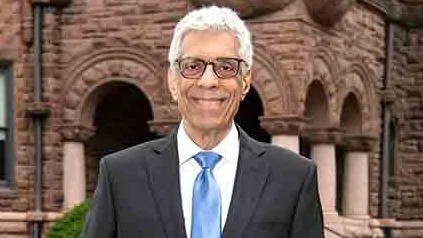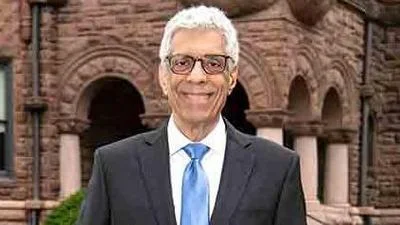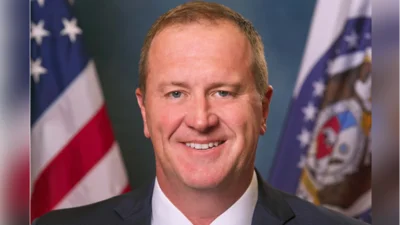Dr. Fred Pestello, President | St. Louis University
Dr. Fred Pestello, President | St. Louis University
Amy E. Wright, Ph.D., a professor of Hispanic Studies at Saint Louis University (SLU), has been appointed as the David Julian and Virginia Suther Whichard Distinguished Professor in the Humanities at East Carolina University (ECU). Wright will serve in this visiting professorship within ECU’s Thomas Harriot College of Arts and Sciences for two years before returning to SLU.
Wright is currently a dean’s fellow in SLU’s College of Arts and Sciences, focusing on graduate education initiatives. She previously directed Spanish graduate studies at SLU for seven years.
The Whichard professorship was established in the mid-1990s by the family of David Julian Whichard, a longtime editor and publisher of The Daily Reflector in Greenville, North Carolina, and his wife, Virginia Suther Whichard, a former teacher and graduate of East Carolina Teachers Training School. The position is awarded to individuals who are nationally recognized for their scholarly and creative work in the humanities.
“Stepping into this new role as the Whichard Distinguished Visiting Professor is a rare chance to serve as a high-profile, transformative ambassador for the humanities—on campus, across North Carolina, and in my field, both nationally and transnationally. I’m deeply grateful for the role that SLU’s support has played in this opportunity,” Wright said. “I share the excitement about all I will learn as I champion the humanities, build partnerships, and hone new leadership and advocacy skills. I’m looking forward to bringing that experience home at the end of my term—so we can translate what I learn at ECU into fresh momentum, programming, and impact for our students and communities at SLU.”
During her tenure at ECU, Wright will lead community-connected projects that aim to promote public humanities, cultural identity and heritage, civic engagement, humanities advocacy, oral history, and storytelling. Planned initiatives include a student-run collective to record and share the life stories of Spanish-speaking community members in both Spanish and English; outreach activities to highlight bilingualism and multilingualism through media, class collaborations, partnerships, and public events; and collaborations with local organizations to create bilingual radio dramas for campus radio, supported by an accompanying website and virtual exhibit.
Wright’s research focuses on Mexican and broader Hispanic cultural history through sound and serial storytelling, including corridos, radionovelas, telenovelas, comics, film/TV, and podcasts. Her international experience includes extended periods living in Mexico and Spain.
“In collaboration with communities, I create archives and programs that connect scholarship with lived experiences,” Wright said. “I feel deeply honored and grateful. This distinguished professorship is both an affirmation of my work with Latin American/Spanish-speaking media and my passion to serve broader communities. I’m excited to join ECU to spotlight the value of languages, literatures and cultures — and to amplify the voices and artistic traditions of Spanish-speaking communities on campus and across the region.”
In 2024, Wright received an honorable mention from the Modern Language Association of America (MLA) for the Katherine Singer Kovacs Prize for her book Serial Mexico: Storytelling across Media, from Nationhood to Now, published in 2023 by Vanderbilt University Press. She was also awarded an individual fellowship from the National Endowment for the Humanities (NEH) in 2022 to support her book project. NEH fellowships are highly competitive national awards supporting advanced humanities research.
In addition to her research and creative work, Wright will teach bilingual-friendly courses at ECU in English and foreign languages and literatures. Her courses will include community-engaged elements such as oral history labs, media storytelling, and partnerships with local organizations. The first course she will offer is “Latina Voices in American Literature & Culture” in spring 2026.






 Alerts Sign-up
Alerts Sign-up